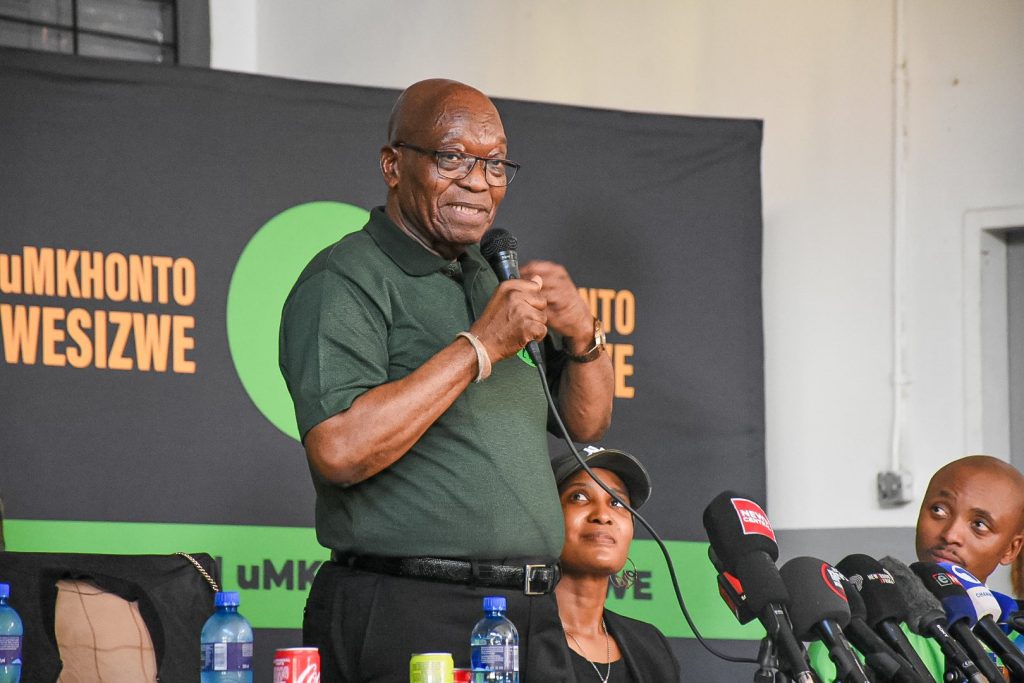Former South African president Jacob Zuma has announced that he will not vote for the African National Congress (ANC) in the upcoming elections and is establishing a new political party named uMkhonto we Sizwe (MK), echoing the name of the ANC’s former armed wing. Zuma, who served as the country’s president from 2009 to 2018, expressed that supporting the current ANC led by President Cyril Ramaphosa would be a betrayal.
During a news conference in Soweto, where Zuma cited health reasons for being unable to speak at length, his daughter read a statement on his behalf. The statement acknowledged the ANC as “one of the great liberation movements of our time” but lamented that the party had transformed into an organization unrecognizable from its former self.
Zuma criticized certain leaders within the ANC for displaying “un-ANC manner” behavior and declared his intention to “rescue” the organization. He predicted the ANC’s defeat in the upcoming elections, attributing it to a perceived deliberate plot against the party. Zuma accused President Ramaphosa of being a “proxy of white monopoly capital” and claimed that the current ANC had declared war against black professionals and intellectuals.
Expressing his refusal to campaign for the ANC of Ramaphosa, Zuma pledged his support to the newly registered MK party and emphasized the importance of the people’s quest for freedom. He warned against a government led by “sell-outs and apartheid collaborators” and urged for a vote in favor of MK.
Zuma’s statement touched on the need for socio-economic justice and equality for true reconciliation, referring to “enemies of our people operating among us.” The former anti-apartheid activist and political prisoner during the apartheid era criticized the ANC’s transformation and characterized the current government as a failure.
Zuma’s presidency was marred by corruption allegations, leading to his resignation in 2018. In 2021, he was jailed for contempt of court, triggering protests and riots that resulted in over 350 deaths. Released on medical grounds, the legality of his release was later contested, but he did not return to prison due to overcrowding.
As South Africa approaches crucial national elections in the coming year, Zuma’s move signifies a significant shift in political dynamics and adds complexity to an already competitive electoral landscape.
